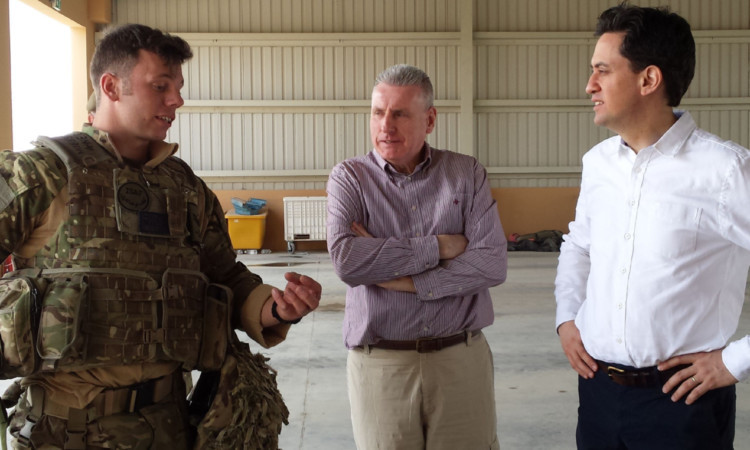
Ed Miliband has announced that any Labour Government he leads will act to outlaw discrimination against soldiers, sailors and airmen.
The Labour leader pledged that if he wins the general election next year a bill to protect service personnel from unfair treatment would be one of their first pieces of legislation.
Miliband was speaking yesterday in Afghanistan on a visit to British troops stationed at Camp Bastion.
The proposed legislation would make any verbal or physical assault an aggravated one. That means it would attract harsher penalties and give service personnel similar protection to people with disabilities, religious groups and ethnic minorities.
He told troops: “We will not let the heroism and bravery of our Armed Forces be forgotten once Afghanistan has dropped from the headlines.
“We will be committed to recognising the unique place of the armed forces in our society.
“That is why I want to tell you we are committed to changing the law to make it a specific criminal offence to assault a member of the armed forces, and to outlaw discrimination against service personnel and veterans.
“Men and women in the Army, Navy and RAF serve us with dignity and bravery. It is our duty to ensure they are treated with dignity in return.”
Miliband also said Labour would amend the Equality Act to ensure businesses could not refuse to serve someone because they were in uniform.

Enjoy the convenience of having The Sunday Post delivered as a digital ePaper straight to your smartphone, tablet or computer.
Subscribe for only £5.49 a month and enjoy all the benefits of the printed paper as a digital replica.
Subscribe